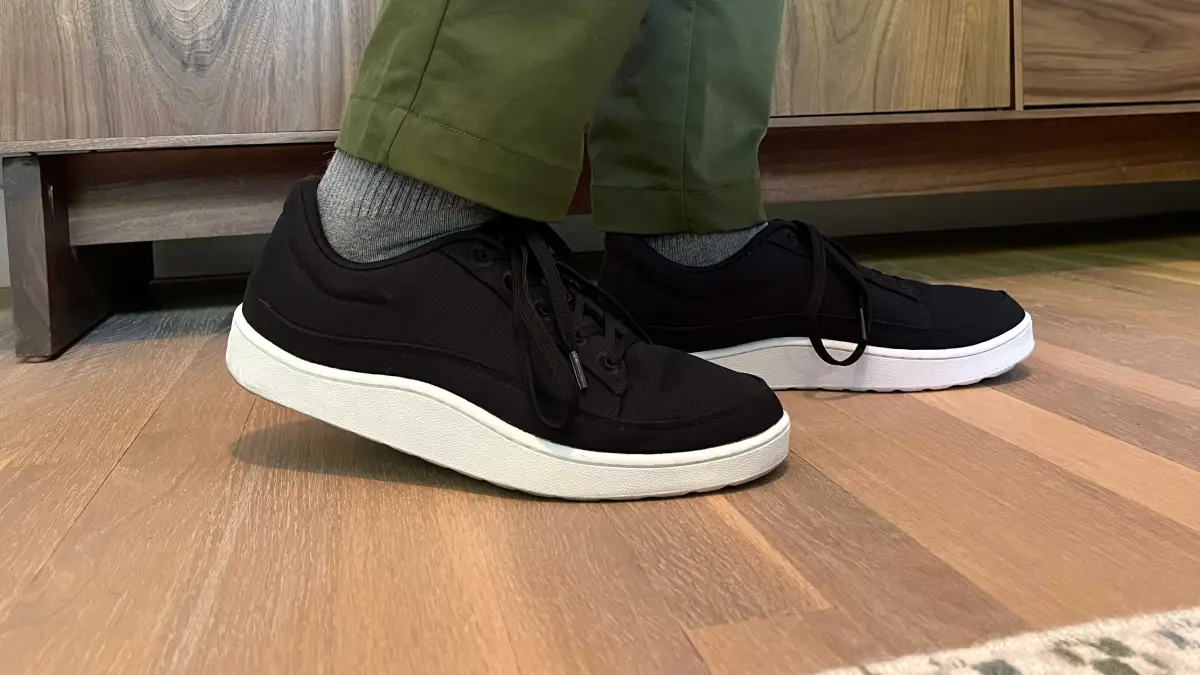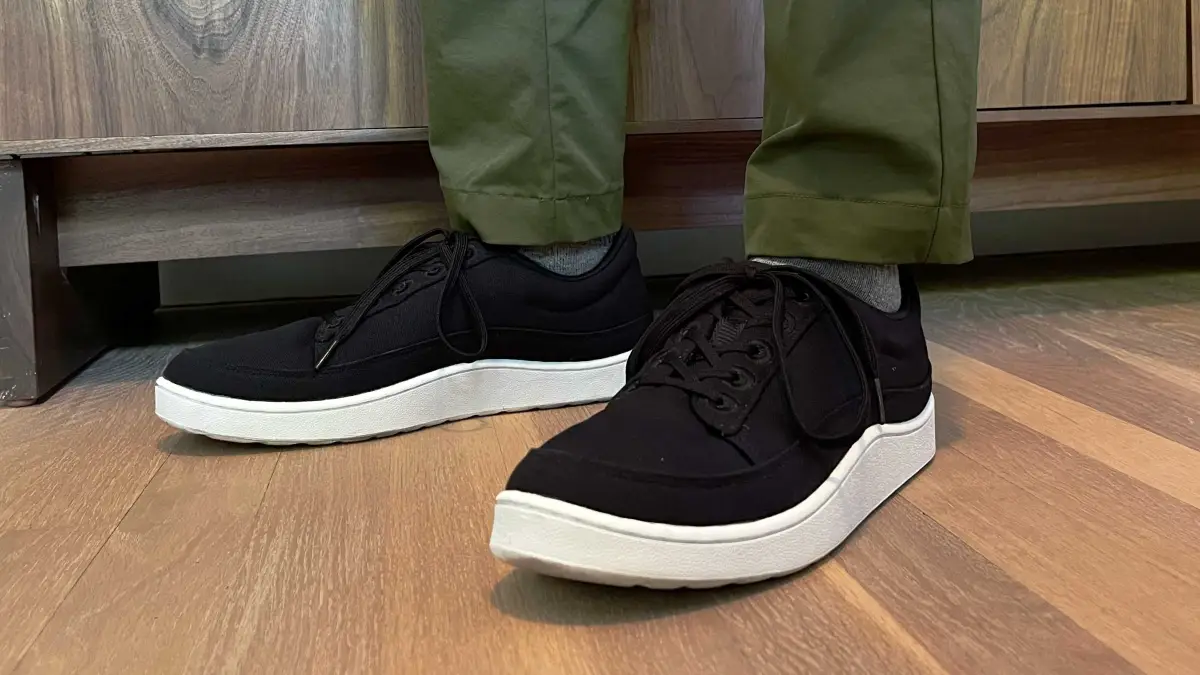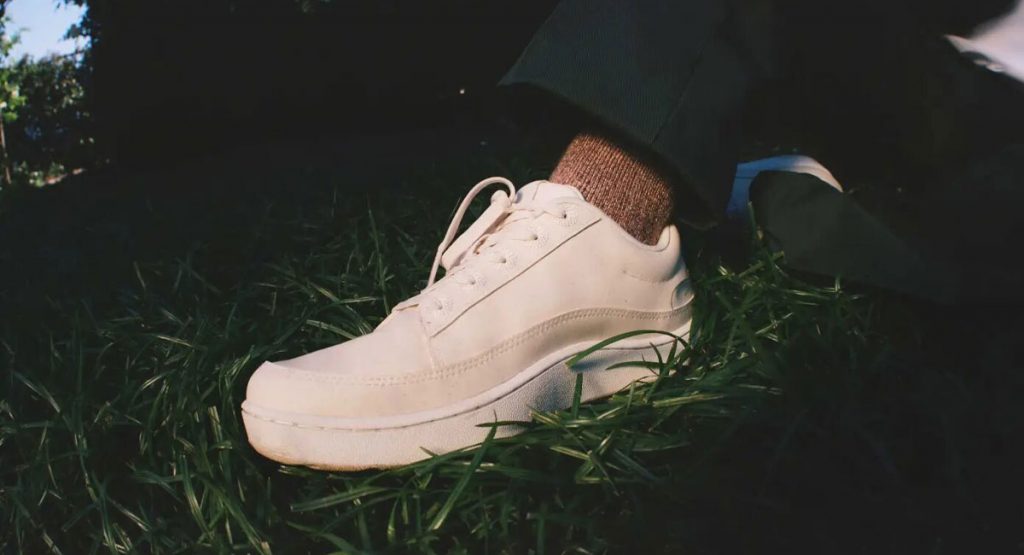The sneaker world has a dirty secret — the carbon footprint of just about every shoe out there weighs more than the shoe itself. Then there’s the extensive use of plastics and polyesters, foam and rubber, nearly all of which is derived from fossil fuels. Those clean kicks might not be so clean after all.
Recently, though, sneaker companies have started to wake up and address the issue. Some, like Adidas and On Running, have been exploring shoes made of materials that can be recycled back into new shoes. Few shoe companies, though, have made sustainability as central to their business and marketing as Allbirds.
The company has long been known for its signature Wool Runners style, a running-inspired silhouette that is still a staple at workplaces, conferences and airports alike. Now, the company is bringing its sustainability-informed ethos to a new style, the Pacer. It’s a classic, stripped-down version of your basic sneaker.
The Pacer comes in two styles, Plant, which has a plastic-free alternative leather upper, and Canvas, which has an organic cotton or organic cotton/recycled polyester upper, depending on the color. The Canvas style echoes — but doesn’t copy — classic Vans or Keds silhouettes, while the Plant style looks a bit like a rounded-off Air Force 1.

The materials are a key part of the pitch. Alternative leathers are popping up everywhere, and they no doubt keep the Plant Pacer’s carbon footprint lower than it would be with traditional leather. The Mirum material is made by Natural Fiber Welding, a startup out of Peoria, Illinois, that received early venture backing from Allbirds, fashion house Ralph Lauren and BMW i Ventures.
I didn’t get to test the Plant Pacer, but I did get a black sample of the Canvas Pacer, which is 100% organic cotton for the upper. It’s soft and flexible, and I didn’t feel any pressure points at the seams. The stitching is superb — no rough spots — and I couldn’t find any misplaced glue, something that can stand out on a black shoe.
The wrap-around natural rubber outsole has a subtle wave to it, which I think looks better in person than in the promo shots — nobody’s going to be looking at your shoes from ground level and the top-down view works well.
The midsole was pretty comfy for a shoe of this style. It’s definitely better than Vans and even better than some of the modernized Chuck Taylors. That said, I couldn’t get comfortable in them, mostly because the shoe pressed against the outside of my big toe. It was somewhat surprising since I’ve got pretty narrow feet, though not entirely — I had the same problem with the Trail Runners. On the Trail Runners, sizing up solved that problem but then eliminated any chance of achieving a good lockdown. Normally, I don’t have that problem with other brands.
With a more casual shoe, lockdown isn’t as much of a concern, but it may not work for everyone. Since the Pacers only come in full sizes — no half sizes here — things could get sloppy real fast. Sizing is very personal, though, so it might just be a me problem.

If Allbirds solved my fit problem, would I buy them? Perhaps. If I were looking for a casual shoes that I could dress up, I’d give them a close look, especially the natural white Plant Pacer. The color is a trendy off-white with a subtle speckle that sets them apart. That said, I tend to prefer running-inspired silhouettes, so I’d probably go for something else in the Allbirds lineup. (I really wanted the Trail Runners to work since they’ve got some bold colorways that look great on a trail shoe.)
Sustainability-wise, the shoes certainly check many of the right boxes. They’re mostly plant-based, from the natural rubber sole to the sugar cane-derived SweetFoam midsole to the Mirum or canvas upper. (The laces are still polyester, but of the recycled variety.)
Allbirds says the Pacers’ carbon footprints range from 7.99 kg to 8.24 kg, which is on par with an Air Max 90 but nearly half that of an Air Force 1 (per Nike’s estimates from 2017). Allbirds goes further, though, buying enough carbon offsets to counter the shoes’ footprint. Offsets have their problems, but at least they’re trying, and the company appears to be purchasing high-quality ones.
If you’re already an Allbirds fan looking for a change, you’re probably already browsing the site. But if you’re not, give them a look. They’re a solid shoe that appears well made, and they’ve got some decent sustainability bona fides, which makes a price point above $100 reasonable. If they match your style and the sizing works out, they’d be hard to pass up.
